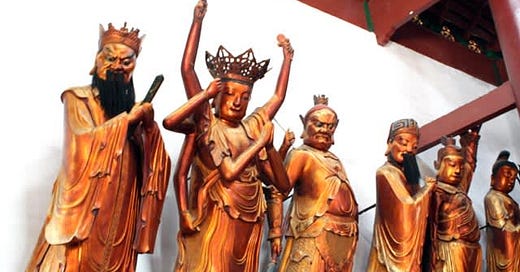The Third Patriarch of Chan (Zen), Jianzhi Sengcan, is remembered for his text Xinxin Ming or "Faith in Mind." One of the earliest Chinese Chan expressions of the Buddhist mind training practice, it sometimes surprises people who thought Buddhism was not a matter of "faith." In fact, its polemics are a direct response to the rise of Pure Land Buddhism, which did indeed call on the "believer" to have "faith" in a surrogate deity, Amitabha Buddha. Sengcan says (in my flippant paraphrase), "Forget about calling on outside help. Trust your mind."
Sengcan's emphasis on the mind is apparent in the very first lines:
The Great Way is not difficult
for those who have no preferences.
This was seen in a famous Zen story, as told by Paul Reps in Zen Flesh, Zen Bones:
When Banzan was walking through a market he overheard a conversation between a butcher and his customer.
"Give me the best piece of meat you have," said the customer.
"Everything in my shop is the best," replied the butcher. "You cannot find here any piece of meat that is not the best."
At these words Banzan became enlightened.
["Banzan" was the Chinese monk Panshan.]
Anyway...
--------
One ought not to discriminate between better and worse, or even this or that. But I do.





